
-
Find the right food for your petTake this quiz to see which food may be the best for your furry friend.Find the right food for your petTake this quiz to see which food may be the best for your furry friend.Featured products
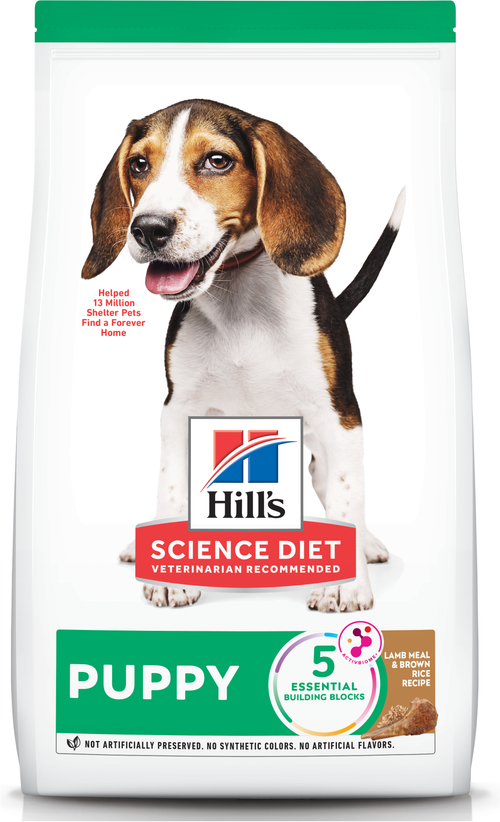 Puppy Lamb Meal & Brown Rice Recipe
Puppy Lamb Meal & Brown Rice RecipeVital nutrients to support 5 essential building blocks for lifelong health
Shop Now Puppy Large Breed Chicken & Brown Rice Recipe
Puppy Large Breed Chicken & Brown Rice RecipeVital nutrients to support 5 essential building blocks for lifelong health
Shop Now Hill's Science Diet Adult 7+ Senior Vitality Small & Mini Chicken & Rice Recipe Dog Food
Hill's Science Diet Adult 7+ Senior Vitality Small & Mini Chicken & Rice Recipe Dog FoodImproves everyday ability to get up & go
Shop NowFeatured products Adult Indoor Chicken Recipe Cat Food
Adult Indoor Chicken Recipe Cat FoodSupports energy level and beautiful fur in indoor cats
Shop Now Adult 7+ Chicken Recipe Cat Food
Adult 7+ Chicken Recipe Cat FoodSupports energy level and beautiful fur in mature cats
Shop Now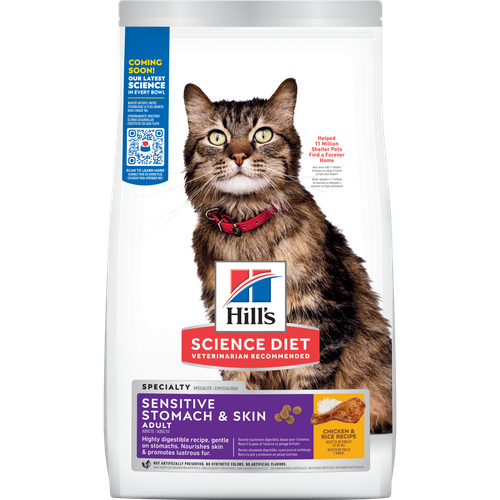 Adult Sensitive Stomach & Skin Cat Food
Adult Sensitive Stomach & Skin Cat FoodHighly digestible food that is gentle on the stomach. Nourishes skin & promotes lustrous fur.
Shop Now -
Dog
- Dog Tips & Articles
-
Health Category
- Weight
- Food & Environmental Sensitivities
- Urinary
- Digestive
- Joint
- Kidney
-
Life Stage
- Puppy Nutrition
- Adult Nutrition
Cat- Cat Tips & Articles
-
Health Category
- Weight
- Skin & Food Sensitivities
- Urinary
- Digestive
- Kidney
-
Life Stage
- Adult Nutrition
Featured articles The Incredible Science Behind Your Pet's Microbiome
The Incredible Science Behind Your Pet's MicrobiomeLearn what a pet's microbiome is, how it contributes to your pet's gut & overall health, and why nutrition is important in maintaining healthy microbiomes.
Read More Water
WaterDiscover why water is the most important nutrient for your dog or cat to live a healthy life. Find out how much water your pet should consume each day.
Read More Pet Food Storage Tips
Pet Food Storage TipsDiscover how and where to store your dry, as well as canned, dog and cat food. Learn how to find the "best before" dates on all Hill's pet food packaging.
Read More -


You know what to do when your dog drools, but what do you do when he suddenly stops drooling? If your dog is experiencing dry mouth, there could be more serious underlying issues. Learning the possible causes and treatments of dog dry mouth can help you keep your pup at his best.
Xerostomia in Dogs: What Is Dry Mouth?
Dog drool may seem gross at times, but it is a sign that your dog is producing saliva. Saliva helps keep a dog's mouth comfortable. If you're not seeing any slobbering and your dog's mouth seems to be dry, your four-legged companion may have dry mouth, also known as xerostomia. Without liquid washing over the teeth to keep them clean, this condition can cause bad breath in both dogs and people. It's not always painful, but xerostomia in dogs can affect swallowing and eating. Besides bad breath, dogs with dry mouth may have sticky, dry-feeling gums, notes Wag!.
It is important to monitor your dog from head to toe on a regular basis. During a wellness visit you may want to ask your veterinarian about normal levels of saliva. If he has dog dry mouth, is it related to his breed, age, diet or something more serious? If your dog's bad breath and dry mouth seems to be getting worse or causing your pet to act differently, then a special trip to the vet is a good idea. It's always better to be safe than sorry, so if something just doesn't seem right, schedule an appointment as soon as you can.
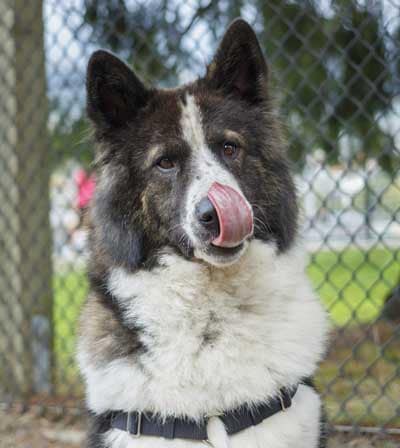
Common and Uncommon Causes of Dog Dry Mouth
Dog dry mouth can come from a wide variety of environmental and health conditions:
- Dehydration. This can present itself as a dry dog nose or dry mouth. Dehydration can be dangerous if left untreated, so make sure your dog is drinking plenty of water and has fresh water available at all times. If he seems weak or is having difficulty breathing, take him to the vet right away.
- Reaction to medication. Certain veterinary medications, such as antihistamines, can cause xerostomia in dogs, according to Animal Planet. If the medication is something your dog will be on long-term, talk with your vet about other options or ways to treat dry mouth concurrently.
- Cancer treatment. The American Animal Hospital Association notes that "although pets may experience some side effects of treatment, those symptoms are typically milder than symptoms that humans experience, and many pets go into remission after just a few doses of chemotherapy." If your dog is receiving radiation therapy and you notice dry mouth during or even after his treatments, talk to your vet. It is also important to pay attention to whether the dry mouth is happening along with diarrhea or other gastrointestinal issues.
- Abnormal immune reaction. According to The Merck Veterinary Manual, your pup's immune system could be launching an attack on his salivary glands. Your vet can prescribe immunosuppressive medication to help with this issue.
- Nerve damage. Although this is rare, The Merck Veterinary Manual notes that tumors, surgery complications, and traumatic injuries sometimes cause nerve damage. If that damage is in the eye, mouth, or nose area, the salivary glands could be affected.


Tasty Tips
Time for Treatment>
Once your vet determines the cause of dog dry mouth, Merck Vet Manuals writes that they may suggest any of the following treatments:
- Encouraging your dog to drink more water
- Regular use of mouthwash or dry mouth medication specially formulated for dogs
- Daily tooth brushing and regular dental cleanings in the vet's office
If you notice your dog producing less saliva than normal, start with getting him to drink more and checking for dehydration. If his dry mouth continues or worsens, it's time to see the vet to determine the cause. Since dry mouth can be a side effect of more serious conditions, it is important to have your vet properly diagnose the issue and recommend a treatment method.


Chrissie Klinger is an educator, writer and mother of two children, three dogs and three cats. Her dog Jake loves sitting on her lap every chance he gets! She enjoys living an active and eco-friendly lifestyle in rural Pennsylvania.
Related products

Vital nutrients to support 5 essential building blocks for lifelong health
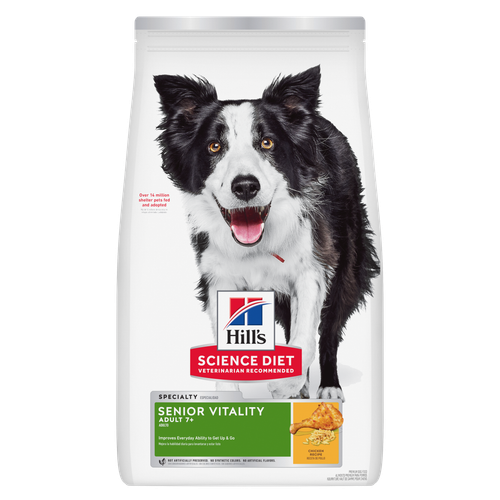
Improves Everyday Ability to Get Up & Go

Improves everyday ability to get up & go

Vital nutrients to support 5 essential building blocks for lifelong health
Related articles

Learn how to stop your dog from begging at the dinner table, and understand how it can help contribute to his health.
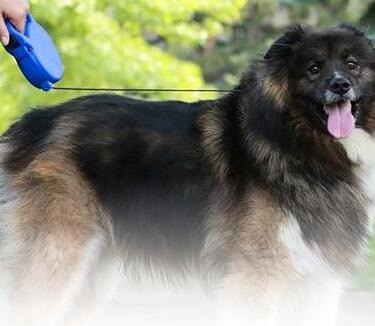
Discover fun and engaging games and other ways to help your dog exercise, keeping him happy and healthy.

Learn basic steps & precautions for treating a cut on your dog, including what you can put on the cut, and when you should take them to the vet.

Understand the role that Omega-6 and Omega-3 fatty acids play in your dog's overall health, and how you can ensure they are getting enough.

Put your dog on a diet without them knowing
Our low calorie formula helps you control your dog's weight. It's packed with high-quality protein for building lean muscles, and made with purposeful ingredients for a flavorful, nutritious meal. Clinically proven antioxidants, Vitamin C+E, help promote a healthy immune system.
Put your dog on a diet without them knowing
Our low calorie formula helps you control your dog's weight. It's packed with high-quality protein for building lean muscles, and made with purposeful ingredients for a flavorful, nutritious meal. Clinically proven antioxidants, Vitamin C+E, help promote a healthy immune system.

